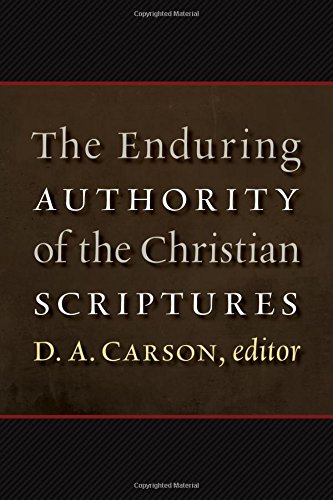A Brief Book Summary from Books At a Glance
Editor’s Note: Today we continue our series of “bonus” summaries covering all thirty-six chapters of the monumental volume, The Enduring Authority of the Christian Scriptures (D.A. Carson, ed.).
Chapter 7: The “Old Princetonians” on Biblical Authority
by Bradley N. Seeman
(Summarized by Mark Coppenger)
Eighteenth-century Germany was the place to go for state-of-the-age biblical/theological study, the place where the literature was vast and the perspective liberal. “Higher criticism” was coming into its own, and those who wanted to get up to speed needed to make the pilgrimage. In this connection, the Unitarians taking over Harvard sent a “golden boy,” Edward Everett, to study with Gottfried Eichorn, and he became the first American to earn a German doctorate. (Thousands would follow.)
Another young star, Charles Hodge, left Princeton Seminary for Germany, but he was determined to prepare himself for astute defense of the faith. He wanted to be well-versed in the good and bad scholarship and resources, and he was consistently encouraged to stay the course. In this connection, Princeton’s A.A. Alexander wrote to the ex-pat Hodge,
Remember that you breathe a poisoned atmosphere. If you lose the lively and deep impression of divine truth – if you fall into skepticism or even into coldness, you will lose more than you gain from all the German professors and libraries. May the Lord preserve you from error and from all evil. You may depend upon any aid which my feeble prayers can afford.
The results: Everett left the ministry for politics; Hodge came back a warrior for biblical inerrancy.
Inerrancy-detractors say that Hodge and the Princeton crew not only championed inerrancy; they invented it and thus introduced alien and divisive theology into the church (the Innovation Argument). On this model, Hodge fell prey both to the Common Sense philosophy of Scotland’s Thomas Reid and the scientific protocols of Francis Bacon, as laid out in the Aristotle-supplanting Novum Organum (1620).
Critics such as Stanley Grenz, Nancey Murphy, Daniel Doriani, and George Marsden jump on a quote from Hodge’s introduction to Systematic Theology. . .
[To continue reading this summary, please see below....]The remainder of this article is premium content. Become a member to continue reading.
Already have an account? Sign In
